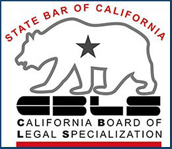Meeting a Family Law Attorney? How to Prepare
Whether you have made the decision to end your marriage or have questions about modifying your support or custody actions, you should take some time to prepare before meeting with a family law attorney. Below is a list of information that will be helpful to evaluate your particular situation and help develop a strategy to meet your goals and objectives. Additionally, in California, if you are divorcing, each party needs to prepare disclosure documents consisting of a listing of assets and debts and income and expenses. The information listed below will be needed to complete these forms. Other items, not listed below, may be required in your particular case.
For Divorce or Legal Separation:
- Date of Marriage
- Full names and dates of birth of any minor children of your relationship
- Addresses where children have lived for the past five years
Financial Information (including account names, numbers, balances and current statements)
- Two years of personal and business income tax returns
- Prior year W-2 forms
- Current Bank statements (checking, savings, money market)
- Statements from trusts, stocks, bonds or U.S. Treasury notes
- List of safety deposit box contents
- Most recent retirement account statements (IRA, 401K, 403b, pension, annuity, etc.)
- Social Security Statement
Real and Property Information
- A list of all property, address, ownership interest, deeds, mortgage statements, appraisals (if any), source of down payment, source of payment for improvements
- A list of all personal property of value including motor vehicles, objects of art, antiques, collectibles
- Entity names and description of any business entity or interest in which you or your spouse have an interest
- Information as to any property owned before marriage or acquired during marriage by gift or inheritance
- Interests in trust (current or future)
Current Expense Information and Outstanding Debt (including balances, statements, source of payments/funds)
- Most recent credit card statements
- Most recent loan documents
- Information as to recurring monthly expenses
- Contemplated extra-ordinary expenses
- Other bills (school tuition, medical bills, etc.)
- Monthly budget worksheet
Legal Documents
- Estate Planning (Wills and Trusts)
- Prenuptial agreements (also termed premarital agreement, antenuptial agreement)
- Divorce judgments from a prior marriage and/or child support orders
You should also make notes as to your questions and goals as well as individual concerns. Anticipate a discussion on the different process options available to resolve your family law issues, including, negotiation, mediation, collaborative divorce or litigation.
As this process can be emotional, having made notes of your questions before hand will be helpful. Topics to be discussed, besides learning about the process, include, custody and support of children, spousal support, division of assets, payment of attorney’s fees, need for restraining orders and temporary agreements or orders while all issues are being determined
DISCLAIMER: This site and any information contained herein are intended for informational purposes only and should not be construed as legal advice. Seek competent legal counsel for advice on any legal matter.
Practice Areas



